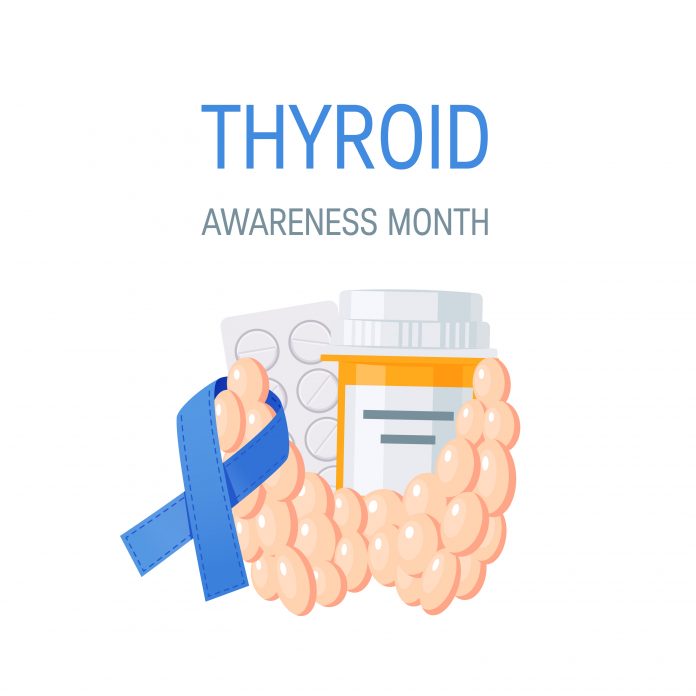Thyroid disease can strike at any age. It is more common as you grow older and the symptoms of thyroid disease can mimic those of other conditions. The two most common thyroid disorders are hypothyroidism (under active thyroid) and hyperthyroidism (over active thyroid). Thyroid disorders are more common in women than men. If your thyroid is not working properly it can affect many other parts of your body, however, it is treatable. The thyroid gland is a small butterfly-shaped gland at the base of your neck. It weighs about 20 grams. The hormones it secretes are essential to growth and metabolism and regulate body function.
Symptoms of Hypothyroidism
- Fatigue and lethargy.
- Sensitivity to cold.
- Pale skin which tends to be dry and a puffy face.
- Unexplained weight gain.
- Pain, stiffness or swelling in your joints.
- Muscle aches.
- High cholesterol levels.
- Brittle nails and hair.
The risk of developing hypothyroidism increases as you age. With advanced age the symptoms can also include memory loss or decreasing cognitive function.
Symptoms of Hyperthyroidism
- Heart problems such as arrhythmia, atrial fibrillation, congestive heart failure and angina.
- Weight loss combined with loss of appetite.
Some symptoms of hyperthyroidism may be masked by medications, especially in seniors.
Problems with your thyroid can be caused by many things. It could be an autoimmune response where your immune system attacks your body. Viruses and bacteria can cause inflammation of the thyroid. Some medical treatments, including radiation therapy can cause thyroid disease. Treatments for thyroid disease will almost always include medication which must be taken for the rest of your life.
Each person’s experience with this disease will differ as will the symptoms. For a diagnosis of thyroid disease you must see your doctor or healthcare provider who can prescribe the proper tests and treatments. To read about thyroid disease and find more information on Thyroid Month, click here.























